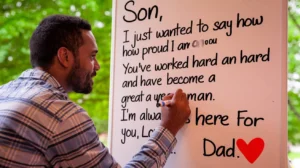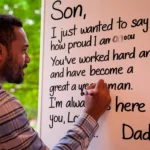Facing the “What’s your biggest fear?” question in an interview can be challenging, but with the right approach, it can also be an opportunity to demonstrate self-awareness and resilience. This question tests not only your ability to confront personal challenges but also your growth mindset and problem-solving skills.
In this article, we’ll explore 30 creative and effective responses that have won interviews, helping you turn a potentially tough question into a chance to shine.
1. “My biggest fear is stagnation. I always push myself to learn and grow.”
This answer shows a commitment to personal and professional development. It highlights a proactive approach to overcoming challenges and a desire for continuous improvement.
Example:
Interviewer: What’s your biggest fear?
Candidate: My biggest fear is stagnation. I always push myself to learn and grow.
By expressing a fear of stagnation, you’re demonstrating your motivation to keep evolving and improving in your career.
2. “I fear not reaching my potential. I’m driven to ensure I always give my best effort.”
This response reflects a strong work ethic and determination. It indicates that you are motivated by the desire to achieve your full potential and deliver high-quality results.
Example:
Interviewer: What’s your biggest fear?
Candidate: I fear not reaching my potential. I’m driven to ensure I always give my best effort.
Expressing fear of not reaching your potential shows that you’re committed to excelling and making the most of your opportunities.
3. “My biggest fear is not being able to adapt to change. I work hard to stay flexible and embrace new challenges.”
This answer demonstrates adaptability and a proactive attitude toward change. It shows that you are prepared to handle dynamic work environments and unexpected shifts.
Example:
Interviewer: What’s your biggest fear?
Candidate: My biggest fear is not being able to adapt to change. I work hard to stay flexible and embrace new challenges.
By addressing the fear of not adapting, you highlight your readiness to face and overcome new challenges.
4. “I fear not being able to make a meaningful impact. I focus on aligning my work with the organization’s goals.”
This response emphasizes the importance of contributing to the organization’s success. It reflects a goal-oriented mindset and a commitment to adding value.
Example:
Interviewer: What’s your biggest fear?
Candidate: I fear not being able to make a meaningful impact. I focus on aligning my work with the organization’s goals.
Highlighting your fear of not making an impact shows your dedication to making a significant contribution to the organization.
5. “My biggest fear is not managing my time effectively. I prioritize tasks and use tools to stay organized.”
This answer reveals a strong sense of responsibility and effective time management skills. It shows that you actively work on overcoming challenges related to organization and productivity.
Example:
Interviewer: What’s your biggest fear?
Candidate: My biggest fear is not managing my time effectively. I prioritize tasks and use tools to stay organized.
Expressing concern about time management shows that you are proactive in ensuring you stay organized and efficient.
6. “I fear not being able to communicate my ideas clearly. I actively seek feedback and work on improving my communication skills.”
This response demonstrates a commitment to clear communication and an openness to feedback. It reflects a proactive approach to self-improvement and effective teamwork.
Example:
Interviewer: What’s your biggest fear?
Candidate: I fear not being able to communicate my ideas clearly. I actively seek feedback and work on improving my communication skills.
By addressing the fear of communication issues, you show your dedication to clear and effective interactions with colleagues.
7. “My biggest fear is failing to meet deadlines. I use detailed planning and regular check-ins to stay on track.”
This answer shows a strong sense of responsibility and a methodical approach to project management. It reflects a commitment to ensuring that deadlines are consistently met.
Example:
Interviewer: What’s your biggest fear?
Candidate: My biggest fear is failing to meet deadlines. I use detailed planning and regular check-ins to stay on track.
Emphasizing your concern about deadlines illustrates your dedication to managing time and meeting expectations.
8. “I fear not building strong relationships with my team. I make an effort to engage with and support my colleagues.”
This response highlights the importance of teamwork and relationship-building. It shows that you value collaboration and are proactive in fostering positive working relationships.
Example:
Interviewer: What’s your biggest fear?
Candidate: I fear not building strong relationships with my team. I make an effort to engage with and support my colleagues.
Addressing the fear of not connecting with your team shows your commitment to teamwork and positive workplace dynamics.
9. “My biggest fear is not keeping up with industry trends. I regularly read industry publications and attend relevant events.”
This answer demonstrates a commitment to staying informed and relevant in your field. It reflects an active approach to professional development and industry awareness.
Example:
Interviewer: What’s your biggest fear?
Candidate: My biggest fear is not keeping up with industry trends. I regularly read industry publications and attend relevant events.
By expressing a fear of falling behind, you show your dedication to continuous learning and staying current in your industry.
10. “I fear not being able to handle high-pressure situations. I practice stress management techniques to stay calm and focused.”
This response highlights your awareness of the importance of managing stress effectively. It shows that you are prepared to handle challenging situations with composure.
Example:
Interviewer: What’s your biggest fear?
Candidate: I fear not being able to handle high-pressure situations. I practice stress management techniques to stay calm and focused.
Addressing stress management demonstrates your readiness to tackle high-pressure scenarios while maintaining your effectiveness.
11. “My biggest fear is not achieving work-life balance. I make a conscious effort to set boundaries and manage my time effectively.”
This answer reflects a commitment to maintaining a healthy balance between work and personal life. It shows that you prioritize well-being alongside professional responsibilities.
Example:
Interviewer: What’s your biggest fear?
Candidate: My biggest fear is not achieving work-life balance. I make a conscious effort to set boundaries and manage my time effectively.
By emphasizing work-life balance, you show that you value both personal and professional well-being.
12. “I fear not adapting to new technologies. I take online courses and seek out training to stay up-to-date.”
This response demonstrates a proactive approach to technological changes. It reflects a commitment to continuous learning and adaptability in a rapidly evolving field.
Example:
Interviewer: What’s your biggest fear?
Candidate: I fear not adapting to new technologies. I take online courses and seek out training to stay up-to-date.
Addressing technological adaptation shows your dedication to staying relevant and competent in a tech-driven environment.
13. “My biggest fear is not being able to solve complex problems. I approach challenges with a problem-solving mindset and seek diverse perspectives.”
This answer reveals a strong problem-solving approach and a willingness to seek input from others. It highlights your commitment to overcoming challenges effectively.
Example:
Interviewer: What’s your biggest fear?
Candidate: My biggest fear is not being able to solve complex problems. I approach challenges with a problem-solving mindset and seek diverse perspectives.
Expressing concern about problem-solving demonstrates your proactive approach to tackling difficult issues and seeking solutions.
14. “I fear not staying motivated during long-term projects. I set short-term goals and celebrate milestones to maintain momentum.”
This response shows a strategic approach to maintaining motivation and focus during extended projects. It reflects a commitment to achieving long-term success through incremental progress.
Example:
Interviewer: What’s your biggest fear?
Candidate: I fear not staying motivated during long-term projects. I set short-term goals and celebrate milestones to maintain momentum.
Addressing motivation in long-term projects shows your dedication to sustained effort and achieving project goals.
15. “My biggest fear is not being able to manage team dynamics effectively. I work on building strong interpersonal skills and understanding team needs.”
This answer highlights the importance of managing team relationships and dynamics. It reflects a commitment to understanding and addressing the needs of team members.
Example:
Interviewer: What’s your biggest fear?
Candidate: My biggest fear is not being able to manage team dynamics effectively. I work on building strong interpersonal skills and understanding team needs.
By expressing concern about team dynamics, you show your commitment to fostering a positive and productive team environment.
16. “I fear not being able to contribute innovative ideas. I stay curious and engage in brainstorming sessions to generate fresh perspectives.”
This response shows a commitment to creativity and innovation. It reflects a proactive approach to contributing new ideas and staying engaged in the creative process.
Example:
Interviewer: What’s your biggest fear?
Candidate: I fear not being able to contribute innovative ideas. I stay curious and engage in brainstorming sessions to generate fresh perspectives.
Addressing innovation shows your dedication to creativity and contributing valuable ideas to the team.
17. “My biggest fear is not receiving constructive feedback. I actively seek feedback from peers and mentors to improve my performance.”
This answer reflects a commitment to self-improvement and openness to feedback. It shows that you value constructive criticism as a means to enhance your skills.
Example:
Interviewer: What’s your biggest fear?
Candidate: My biggest fear is not receiving constructive feedback. I actively seek feedback from peers and mentors to improve my performance.
Expressing concern about feedback demonstrates your commitment to personal and professional growth.
18. “I fear not achieving the goals I set for myself. I regularly review and adjust my goals to stay aligned with my objectives.”
This response shows a strategic approach to goal-setting and achievement. It reflects a commitment to regularly assessing and adjusting goals to stay on track.
Example:
Interviewer: What’s your biggest fear?
Candidate: I fear not achieving the goals I set for myself. I regularly review and adjust my goals to stay aligned with my objectives.
By addressing goal achievement, you show your dedication to setting and meeting personal and professional targets.
19. “My biggest fear is not effectively managing project resources. I use detailed planning and monitoring tools to ensure resource allocation is optimal.”
This answer highlights your approach to resource management and planning. It shows a commitment to ensuring that resources are used efficiently and effectively.
Example:
Interviewer: What’s your biggest fear?
Candidate: My biggest fear is not effectively managing project resources. I use detailed planning and monitoring tools to ensure resource allocation is optimal.
Addressing resource management demonstrates your dedication to effective project execution.
20. “I fear not being able to build a positive work culture. I strive to contribute to a supportive and inclusive environment.”
This response emphasizes the importance of fostering a positive work environment. It shows a commitment to creating a supportive and inclusive workplace culture.
Example:
Interviewer: What’s your biggest fear?
Candidate: I fear not being able to build a positive work culture. I strive to contribute to a supportive and inclusive environment.
By expressing concern about work culture, you show your dedication to contributing to a positive and collaborative workplace.
21. “My biggest fear is not staying ahead of industry changes. I actively seek professional development opportunities to stay informed.”
This answer reflects a proactive approach to staying updated with industry developments. It shows a commitment to continuous learning and professional growth.
Example:
Interviewer: What’s your biggest fear?
Candidate: My biggest fear is not staying ahead of industry changes. I actively seek professional development opportunities to stay informed.
Addressing industry changes demonstrates your commitment to staying relevant and informed in your field.
22. “I fear not being able to deliver high-quality work under tight deadlines. I prioritize tasks and manage time effectively to meet deadlines.”
This response shows a strategic approach to managing time and priorities. It reflects a commitment to delivering quality work even under pressure.
Example:
Interviewer: What’s your biggest fear?
Candidate: I fear not being able to deliver high-quality work under tight deadlines. I prioritize tasks and manage time effectively to meet deadlines.
By addressing tight deadlines, you demonstrate your ability to handle pressure while maintaining high standards.
23. “My biggest fear is not being able to effectively lead a team. I focus on developing leadership skills and understanding team dynamics.”
This answer highlights a commitment to effective leadership and team management. It reflects a proactive approach to developing skills and understanding team needs.
Example:
Interviewer: What’s your biggest fear?
Candidate: My biggest fear is not being able to effectively lead a team. I focus on developing leadership skills and understanding team dynamics.
Expressing concern about leadership demonstrates your dedication to effective team management and personal growth.
24. “I fear not maintaining a positive attitude during challenging times. I practice resilience and seek support when needed to stay upbeat.”
This response emphasizes the importance of maintaining a positive outlook. It shows that you actively work on resilience and seek support during tough situations.
Example:
Interviewer: What’s your biggest fear?
Candidate: I fear not maintaining a positive attitude during challenging times. I practice resilience and seek support when needed to stay upbeat.
Addressing positivity and resilience demonstrates your ability to handle challenges with a constructive mindset.
25. “My biggest fear is not effectively managing client expectations. I focus on clear communication and setting realistic goals to ensure satisfaction.”
This answer shows a commitment to managing client relationships and expectations. It reflects a proactive approach to communication and goal-setting.
Example:
Interviewer: What’s your biggest fear?
Candidate: My biggest fear is not effectively managing client expectations. I focus on clear communication and setting realistic goals to ensure satisfaction.
By addressing client management, you highlight your dedication to maintaining positive client relationships and meeting their needs.
26. “I fear not staying motivated when working on repetitive tasks. I set personal milestones and find ways to make tasks more engaging.”
This response shows a strategic approach to maintaining motivation during repetitive work. It reflects a commitment to staying engaged and finding ways to make tasks interesting.
Example:
Interviewer: What’s your biggest fear?
Candidate: I fear not staying motivated when working on repetitive tasks. I set personal milestones and find ways to make tasks more engaging.
Expressing concern about motivation illustrates your proactive approach to staying engaged in your work.
27. “My biggest fear is not building a strong professional network. I make an effort to attend industry events and connect with others in my field.”
This answer highlights the importance of networking and professional connections. It reflects a commitment to building and maintaining a strong network.
Example:
Interviewer: What’s your biggest fear?
Candidate: My biggest fear is not building a strong professional network. I make an effort to attend industry events and connect with others in my field.
Addressing networking shows your dedication to professional growth and relationship-building.
28. “I fear not being able to meet the high standards I set for myself. I regularly assess my performance and seek ways to improve.”
This response demonstrates a commitment to personal and professional excellence. It shows that you are dedicated to evaluating and enhancing your performance.
Example:
Interviewer: What’s your biggest fear?
Candidate: I fear not being able to meet the high standards I set for myself. I regularly assess my performance and seek ways to improve.
By expressing concern about standards, you show your dedication to maintaining and exceeding your own expectations.
29. “My biggest fear is not being able to handle unexpected changes. I develop contingency plans and remain adaptable to manage unforeseen challenges.”
This answer highlights a proactive approach to handling uncertainty. It shows that you are prepared for unexpected changes and have strategies in place to manage them.
Example:
Interviewer: What’s your biggest fear?
Candidate: My biggest fear is not being able to handle unexpected changes. I develop contingency plans and remain adaptable to manage unforeseen challenges.
Addressing unexpected changes demonstrates your readiness to tackle challenges with strategic planning.
30. “I fear not achieving a work-life balance that supports my well-being. I make a conscious effort to balance professional and personal responsibilities.”
This response reflects a commitment to maintaining a healthy balance between work and personal life. It shows that you prioritize well-being alongside professional responsibilities.
Example:
Interviewer: What’s your biggest fear?
Candidate: I fear not achieving a work-life balance that supports my well-being. I make a conscious effort to balance professional and personal responsibilities.
By addressing work-life balance, you show that you value both personal and professional aspects of your life.

Matthew Porter is the visionary behind ReplySwift.com. With a talent for crafting concise and impactful responses, Matthew helps others communicate with clarity and confidence. On ReplySwift.com, he provides expert advice, practical templates, and valuable insights to enhance every reply. Join Matthew and transform your communication skills to make each response swift and effective.












